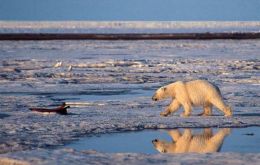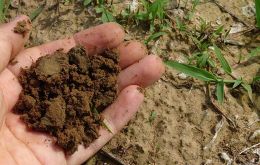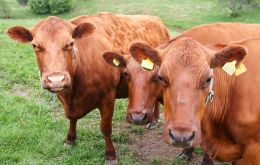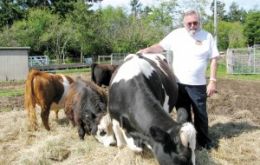MercoPress. South Atlantic News Agency
Tag: greenhouse gases
-
Wednesday, June 7th 2023 - 09:44 UTC
Arctic Ocean may be ice-free during the summer from 2030 onwards

According to a recent study published in the journal Nature Communications, the Arctic Ocean may be ice-free during the summer from 2030 onwards regardless of the level of greenhouse gas emissions.
-
Saturday, April 16th 2022 - 09:48 UTC
Brazilian scientists find new way to capture carbon from the atmosphere

According to a report published Friday by Agencia Brasil, a group of scientists from that country has found new techniques which could be of use in forest recovery and increase the capture of carbon from the atmosphere. April 15 was Brazil's National Soil Conservation Day.
-
Friday, November 22nd 2019 - 09:53 UTC
Brazil seeking more funds from rich countries to protect the Amazon rainforest

Brazil’s plans for environmental protection remain unchanged even as deforestation skyrockets, but Environment Minister Ricardo Salles said the country was looking for more money to implement those plans. Salles largely repeated previously announced plans to bring more development, economic zoning and improved enforcement of environmental laws to the Amazon rainforest region, where deforestation has surged to its highest point in 11 years.
-
Thursday, April 12th 2018 - 08:42 UTC
Global shipping industry discussing in London a cap to emissions

Countries are meeting in an attempt to agree cuts to greenhouse gases from the global shipping industry, amid pressure on the sector to help tackle climate change. Shipping, like aviation, is not directly included in the Paris Agreement, the international deal on global warming which was secured in the French capital in 2015 and commits countries to avoiding “dangerous” climate change.
-
Thursday, February 28th 2013 - 05:33 UTC
Sweden sponsoring tax on meat consumption to help reduce greenhouse gases

In order to reduce greenhouse gases and to sustain the environment Swedish agricultural authorities are suggesting a tax to tame the appetite for meat. The more meat is consumed the more feed is needed to meet this demand, and with the extensive drought the occurred in the US and feed shortages elsewhere in the world. Could this be a viable solution?
-
Wednesday, August 18th 2010 - 00:38 UTC
Environmentally friendly mini-cows latest trend in US farms

They have become the latest trend in United States farms and an estimated 20.000 miniature cattle, weighing less than 300 kilos, are believed to be successfully breeding and could be indicating the future for environmentally-friendly beef.
